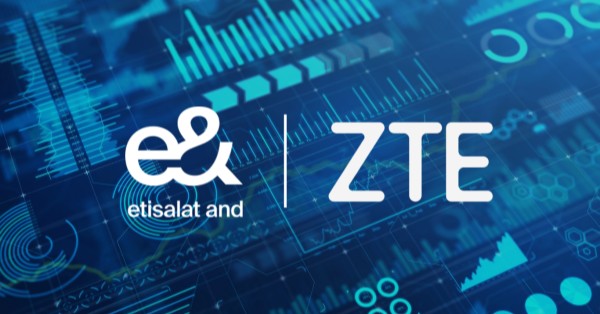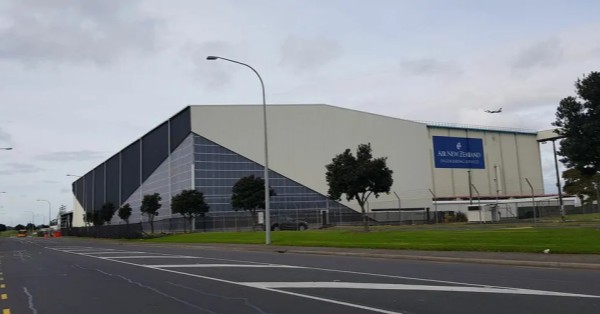SK Telecom Invests US$10 Million into GenAI Startup Perplexity AI
SK Telecom (SKT) has announced a substantial investment of US$10 million in Perplexity AI, a startup renowned for its generative AI search engines. This strategic partnership is poised to integrate AI capabilities into SKT’s operational framework, significantly enhancing their technological infrastructure and broadening their range of AI-driven services. Perplexity AI’s specialization in generative AI will equip SKT with advanced tools to refine search functionalities and improve user interactions across their network. This investment aligns with SKT’s broader vision of incorporating advanced AI technologies to maintain and strengthen their competitive edge in the global telecommunications arena.
The collaboration with Perplexity AI is also expected to accelerate SKT’s research and development initiatives in AI, fostering the creation of more sophisticated AI solutions tailored to the evolving needs of their customer base. By leveraging Perplexity AI’s innovative approach to generative AI, SKT aims to spearhead advancements in telecommunications and technology, demonstrating a strong commitment to staying at the forefront of technological evolution. This move not only underscores SKT’s dedication to enhancing its service offerings but also highlights its strategic foresight in embracing AI-driven innovations to drive future growth.
For more details, visit SK Telecom Invests US$10 Million into Generative AI Startup Perplexity AI.
Cisco Launches $1 Billion AI Investment Fund to Boost GenAI and Machine Learning
Cisco has announced the launch of a groundbreaking $1 billion global AI investment fund aimed at driving advancements in generative AI technologies. This strategic initiative underscores Cisco‘s commitment to fostering secure, reliable AI solutions and promoting innovation in the AI sector. The fund includes substantial investments in promising startups like Cohere, Mistral AI, and Scale AI, which are known for their pioneering work in generative AI.
Focus on Gen AI and Technological Integration
Generative AI, a rapidly evolving field within artificial intelligence, involves the creation of new content and solutions through AI models. Cisco’s investment aims to harness the potential of generative AI to enhance its technology infrastructure. By integrating advanced AI capabilities into its products and services, Cisco plans to improve its offerings’ efficiency, security, and functionality. The focus on generative AI will enable Cisco to develop more sophisticated AI-driven solutions, addressing the complex needs of modern enterprises.
Boosting the AI Startup Ecosystem
The $1 billion fund is also dedicated to supporting the broader AI startup ecosystem. By investing in startups that specialize in generative AI, Cisco aims to foster a collaborative environment that encourages innovation and rapid technological advancement. This support for startups is crucial for developing new AI applications and solutions that can be integrated into Cisco’s existing technology stack.
Strategic Commitment and Initial Investments
Cisco has already committed $200 million of the fund, reflecting its proactive approach to AI innovation. This initial investment emphasizes the company’s strategy to stay at the forefront of AI development and to ensure that enterprises are well-equipped for the AI-driven future. The investments in Cohere, Mistral AI, and Scale AI highlight Cisco’s focus on collaborating with industry leaders to push the boundaries of what is possible with AI.
Global Impact and Enterprise Support
The global AI investment fund is a key part of Cisco’s broader vision to lead in AI innovation on an international scale. By supporting enterprises in their AI readiness, Cisco aims to provide advanced, secure AI solutions that drive business growth and efficiency. This initiative will not only strengthen Cisco’s competitive edge but also contribute to the global advancement of AI technologies.
Cisco’s $1 billion global AI investment fund marks a significant milestone in the company’s journey towards AI innovation. By focusing on generative AI and supporting the AI startup ecosystem, Cisco is positioning itself as a leader in the AI landscape. This strategic investment will enhance Cisco’s technological capabilities and provide enterprises with the tools they need to thrive in an AI-driven world. For more details, visit Cisco Investor Relations.
Chinese Telecom Coolpad Allocates $13.5 Million for Bitcoin Mining Expansion in North America
Chinese telecom provider Coolpad has unveiled plans to invest $13.5 million in Bitcoin mining rigs for deployment in North America. This initiative marks Coolpad’s strategic diversification into the cryptocurrency market amid the growing global interest in blockchain technology. While the sentiments towards AI and crypto stocks fluctuate, Coolpad is concentrating on establishing a robust mining infrastructure to harness the digital currency boom. This strategic investment underscores the company’s commitment to exploring new technological frontiers and diversifying its revenue streams beyond traditional telecommunications services.
Coolpad’s move highlights its strategic foresight in recognizing the lucrative potential of Bitcoin mining, particularly in regions with favorable regulatory environments and abundant resources. By integrating advanced AI techniques to optimize mining operations, Coolpad aims to enhance efficiency and profitability in this new venture. This initiative reflects Coolpad’s adaptability and innovation in the face of emerging technologies and its dedication to leveraging AI to maximize operational effectiveness and capitalize on new growth opportunities in the cryptocurrency sector. For more details, visit Crypto News.
Deutsche Telekom Ventures into Bitcoin Mining with AI and Web3 Technologies
Deutsche Telekom, the largest telecom provider in Europe, is making significant strides in integrating artificial intelligence (AI) and blockchain technologies into its operations. At the Mobile World Congress 2024, Deutsche Telekom unveiled AI smartphone concept developed in collaboration with Qualcomm and Brain.ai. This innovative device aims to eliminate the need for multiple apps by using a digital assistant based on generative AI, simplifying user interactions and enhancing convenience. Furthermore, Deutsche Telekom has joined forces with the Fetch.ai Foundation and Bosch to advance AI and Web3 technologies. This partnership emphasizes the use of AI-driven autonomous agents to manage resources, conduct transactions, and analyze traffic flows, with applications spanning healthcare, automotive, supply chain management, and digital identities. Deutsche Telekom’s role as a validator in the Fetch.ai blockchain highlights its commitment to secure and scalable AI solutions.
Additionally, Deutsche Telekom is a founding member of the Global Telco AI Alliance, alongside SK Telecom and other industry leaders. This alliance aims to revolutionize customer service through tailored language models, demonstrating Deutsche Telekom’s dedication to leveraging AI for improved customer experiences. These initiatives underscore Deutsche Telekom’s strategic focus on harnessing AI and blockchain to drive innovation and maintain its competitive edge in the rapidly evolving telecom industry. For more details, visit Yahoo Finance.




























